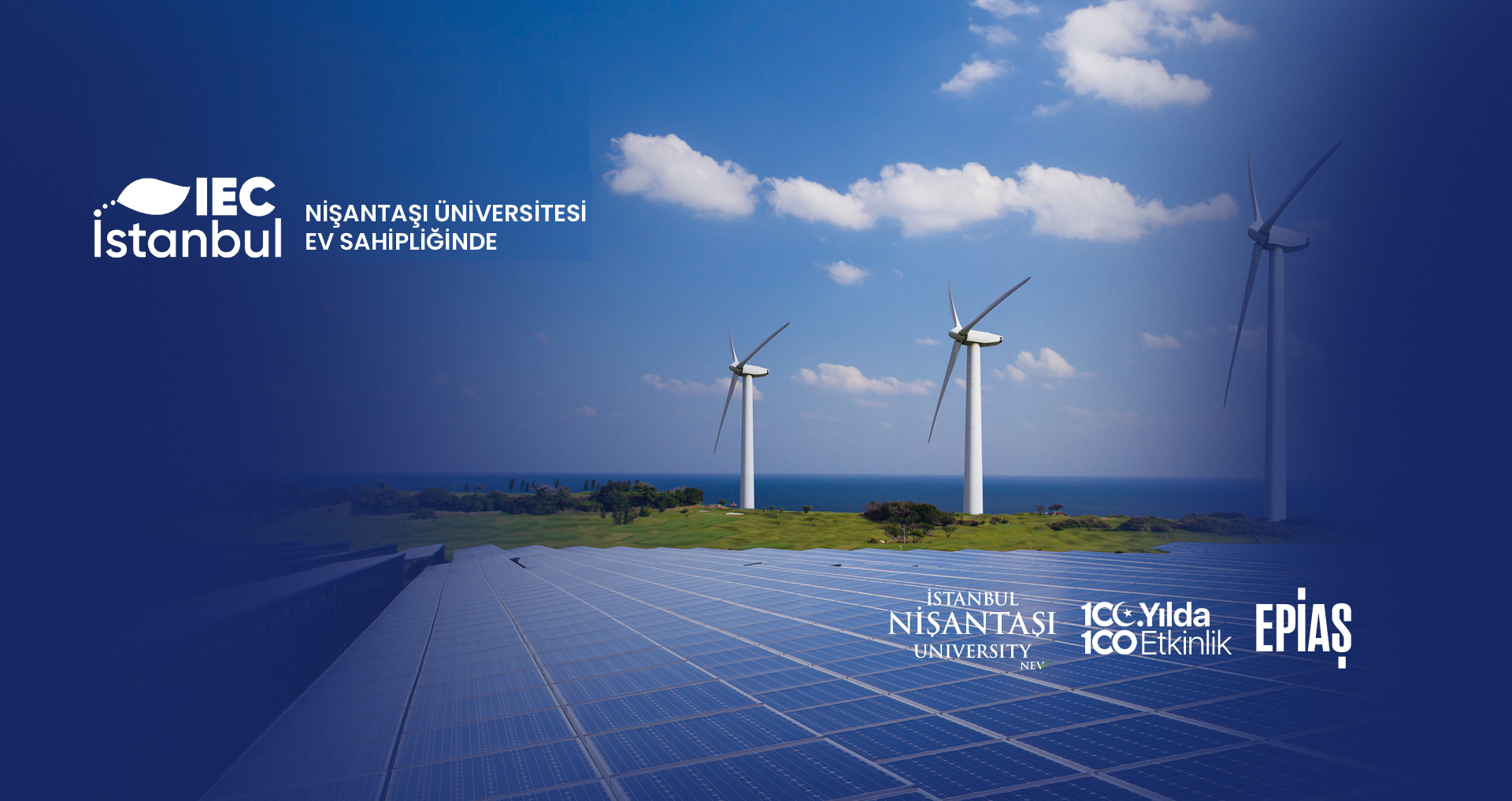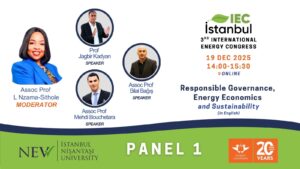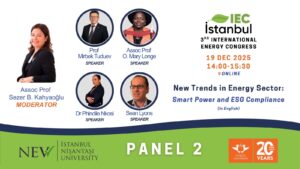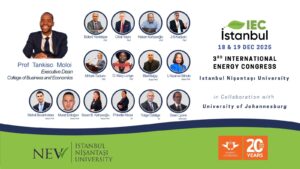ISTANBUL NİŞANTAŞI UNIVERSITY
3rd INTERNATIONAL ENERGY CONGRESS
PLANNED HOST: UNIVERSITY OF JOHANNESBURG
December 18–19, 2025
CLICK ON THE LINK TO REGISTER FOR THE CONGRESS
https://teams.microsoft.com/meet/35325875226166?p=00oNllBCKnXlGkYtx8
The 3rd International Energy Congress will be organized by Istanbul Nişantaşı University, Faculty of Economics, Administrative and Social Sciences, in collaboration with the University of Johannesburg as the host institution, under the main theme “The Approaching Meta-Crisis in Global Energy Consumption: Artificial Intelligence and Data Farms.” The congress aims to discuss the new scale-related challenges emerging within the energy ecosystem due to digitalization through an interdisciplinary perspective, bringing together stakeholders from academia, the public sector, private industry, and civil society on a common ground of knowledge and solution sharing.
The scope covers the impacts of the transformation stretching from digital technologies to data farms on energy demand, the resource utilization and emission profiles of the “digital universe,” the contribution of robotic life to environmental pollution, and the effects of the Internet of Things on human life. Other core discussion topics include the implications of competition among GAFAM companies for global energy consumption, the opportunities and potential future threats of artificial intelligence as a life-facilitating technology, the geopolitics of digital infrastructures, and the energy consumption dynamics of the digital economy.
Issues such as the influence of software like GPT and Gemini on the tradition of scientific research, the pressures exerted by platform economies on bio-resources, and the techno-economic processes shaped by green energy and sustainable governance are considered worthy of scholarly exploration. The congress aims to develop concrete policy, regulatory, investment, and ethical solutions along the axes of competition based on green energy and AI-centered systems. In this regard, the presentation of both theoretical and empirical papers is encouraged.
Expected contributions from participants include cross-country and sectoral comparisons, methodological innovations, strategies pursued through data centers and network infrastructures, environmental and social impact assessments, and roadmaps toward sustainable competitiveness. The proceedings will be compiled in the congress book, and selected papers may, upon request and through a peer-review process, be published as a special issue in the Journal of Social Sciences of Istanbul Nişantaşı University.



